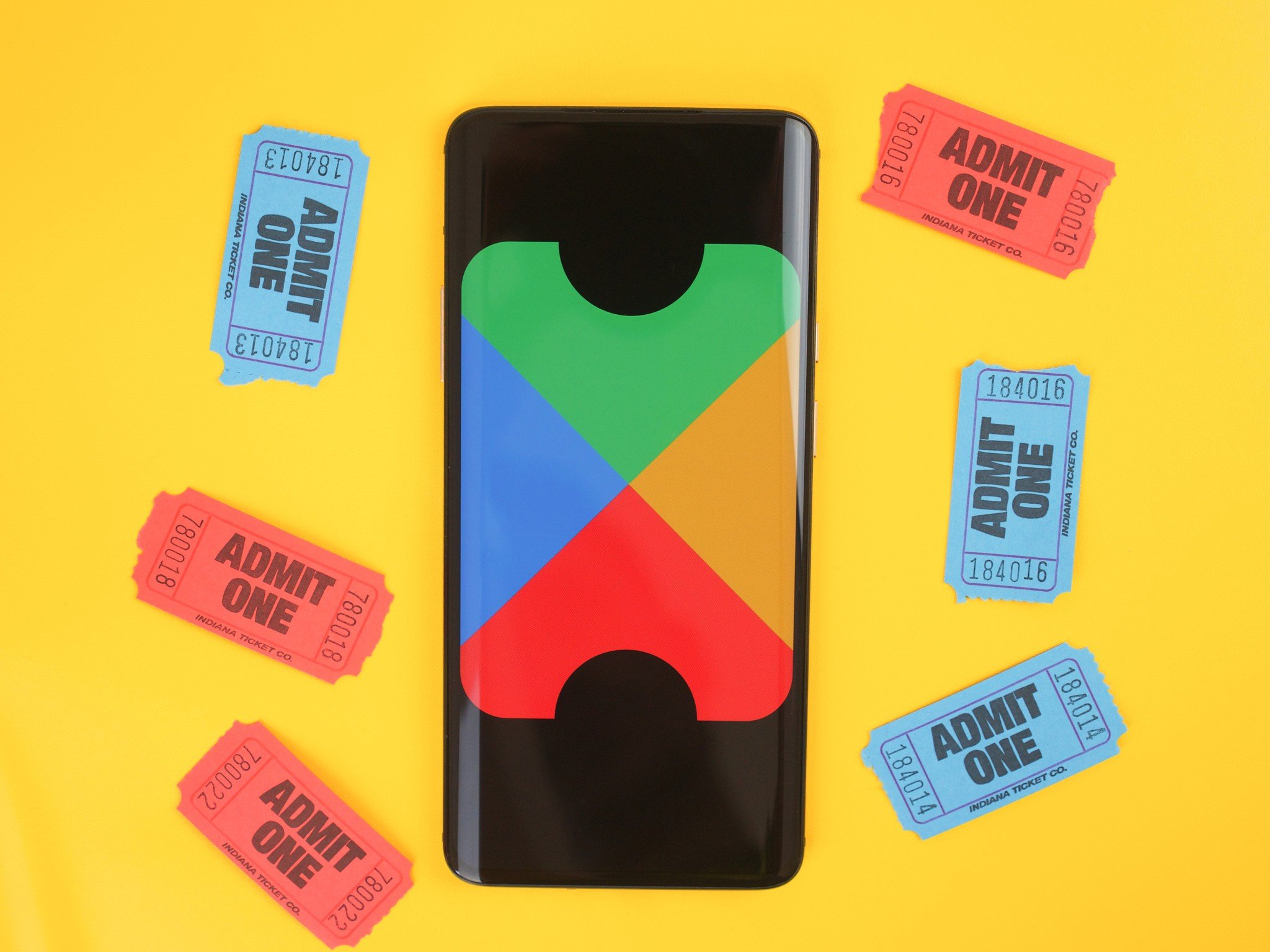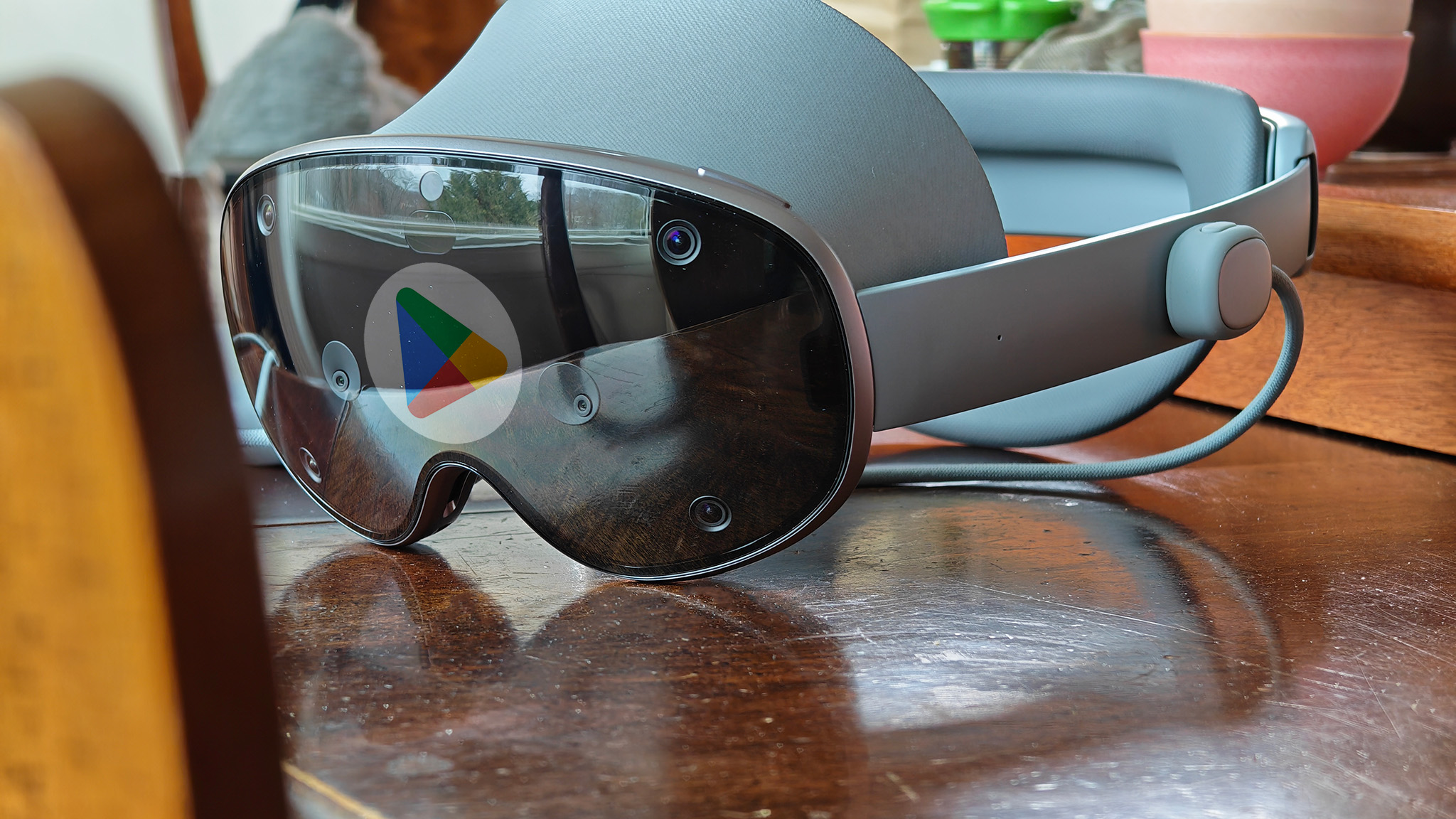Android Central Verdict
There's no denying Play Pass's value proposition. You pay a low monthly fee for access to an extensive collection of apps and games, some of which are more than worth the price of admission on their own. Just be ready to sift through some garbage here and there as Google's curation needs a bit of work.
Pros
- +
Well-integrated into the Play Store
- +
There are a few really strong game offerings
- +
Very affordable
- +
Works on Android and ChromeOS
Cons
- -
Lots of duplicate games
- -
Underwhelming app selection
- -
Many people likely already own a lot of what's included
Why you can trust Android Central
The days of buying individual pieces of digital content are quickly coming to an end. Services like Spotify canceled out the need to purchase individual songs and albums, Netflix and Hulu revolutionized the way we "own" digital movies/TV shows, and now the subscription revolution is making its way to mobile space.
Apple Arcade was the first to enter this field by offering a curated selection of games for its devices, and not too long after Arcade's release, Android users were treated to something similar in the form of Google Play Pass.
Google Play Pass gives subscribers access to over 350 premium games and apps for just $4.99/month. It's an enticing offer and a concept that's bound to be the future of how we consume content on our phones, but if you don't feel like adding yet another subscription to your life, you can probably sit this one out for the time being and be just fine.
Google Play Pass Seamlessly integrated
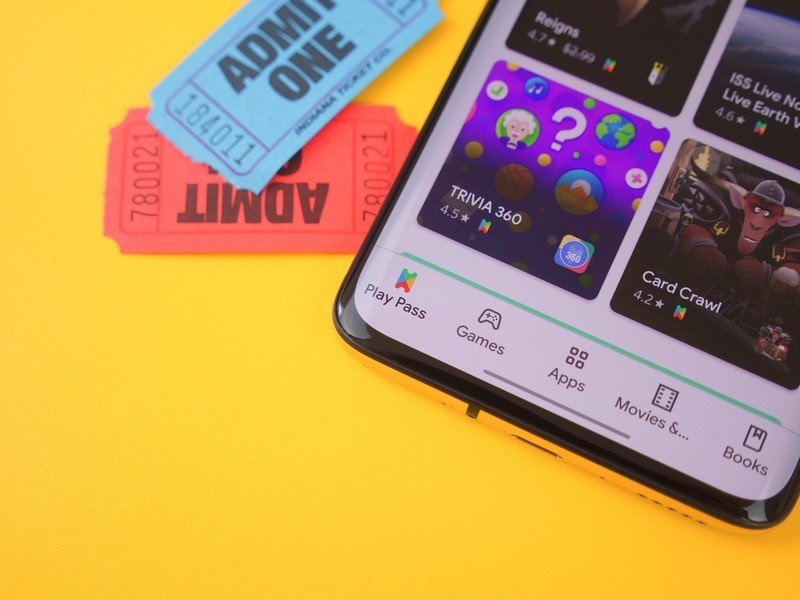
One of my favorite things about Play Pass is how well-integrated it is into the Play Store app. You can subscribe to the service by opening the hamburger menu and tapping the Play Pass option. Once you authorize the recurring fee, a new Play Pass icon pops up in the bottom navigation bar to the far-left.
From here on out (until you cancel your subscription, that is), Play Pass is the default page you land on whenever you open the Play Store. The top of the page highlights apps and games Google thinks "you'll love," and as you keep scrolling down, you'll be able to browse through various categories that organize all of the available titles. Some examples include:
- New and notable
- Top games
- Top apps
- Stimulate your mind
- Make it a game night
- Offline games
- Music & audio
- Take better photos
Play Pass ties in nicely with the rest of the Play Store experience.
You'll also find "Games categories" and "Apps categories" as you continue your scrolling so you can filter the various titles by specific genres. I wish these were more prominent and closer to the top of the Play Pass screen as it can feel a bit overwhelming at times, but overall, it's a clean presentation and one that's relatively easy to navigate.
When you find an app or game that you want to download, tapping on it from the Play Pass page will take you to that title's regular Play Store listing. If the app/game in question normally has a set one-time price, you'll see the list price crossed out underneath the big Install button. Below that, there's a disclaimer letting you know that that title is part of your Play Pass subscription.
Get the latest news from Android Central, your trusted companion in the world of Android
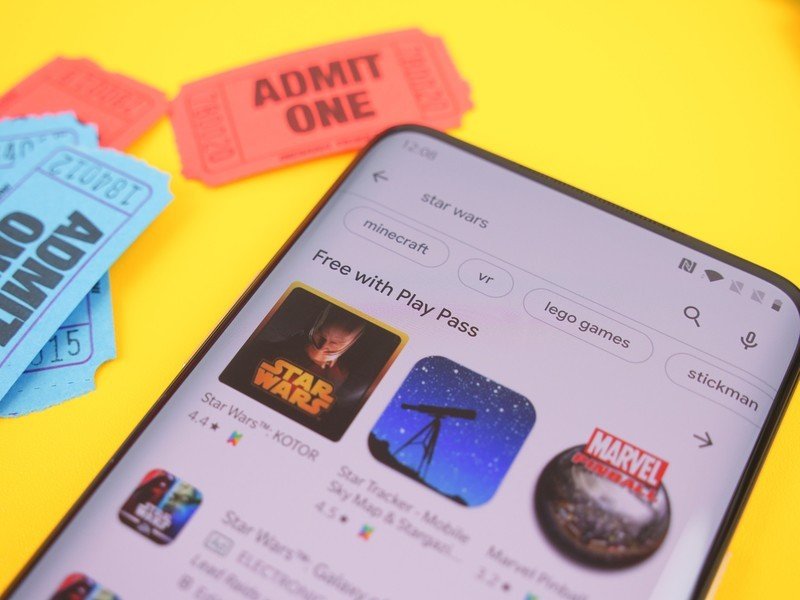
That note is helpful, as content that's part of Play Pass shows up on the Play Store's Games and Apps tabs, too, along with popping up in search results. If you're browsing through a list of things on the Play Store, you'll see a Play Pass logo next to titles that are part of your subscription to help make them stand out.
All of this makes Play Pass feel like an extension of the Play Store rather than it's own standalone thing, and I really appreciate that aspect of it. I wouldn't have put it past Google to go out and create a completely new app for Play Pass, so having this level of tight integration is a big win in my book.
Google Play Pass Quantity over quality
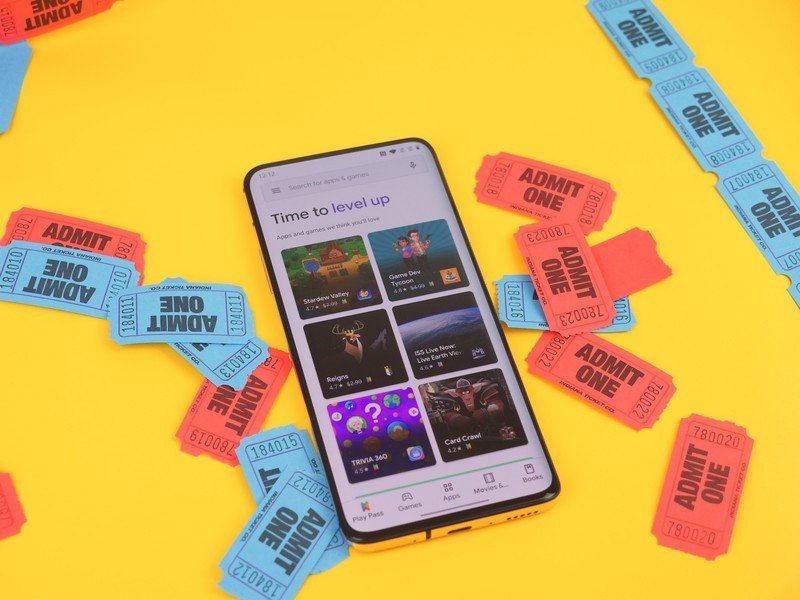
While Apple Arcade and Google Play Pass share the same $4.99/month asking price, the way each service goes about offering content couldn't be more different. Apple Arcade is a finely curated selection of games that can't be accessed without the subscription.
By contrast, Google Play Pass bundles 350+ titles that were already available in the Play Store. If an app or game had a one-time upfront cost, that's simply removed and offered for free. Play Pass also includes things that can normally be downloaded for free on the Play Store, but any ads or in-app purchases are completely removed.
If 350+ sounds like a large number of things to be included with Play Pass right at launch, that's because it is. Google says it'll continue adding to the lineup as time goes on, meaning Play Pass's library will keep growing and growing.
On the gaming side of things, Play Pass has some pretty strong titles that bring great value to the service, some of my favorites including:
- Monument Valley 2
- Stardew Valley
- Star Wars: KOTOR
- Reigns: Her Majesty
- Terraria
- LIMBO
These are all extremely high-quality games that you could easily sink hours upon hours into, and having even just a handful of titles like this helps justify Play Pass's cost.
However, for every high-quality title on Play Pass, you'll have to put up with a few less-than-stellar offerings.
I don't necessarily mean that there are games on here that can't be enjoyed by someone, but it does feel like Google crammed in some titles just for the sake of reaching that 350 number rather than focusing on making sure every included game serves a clear purpose.
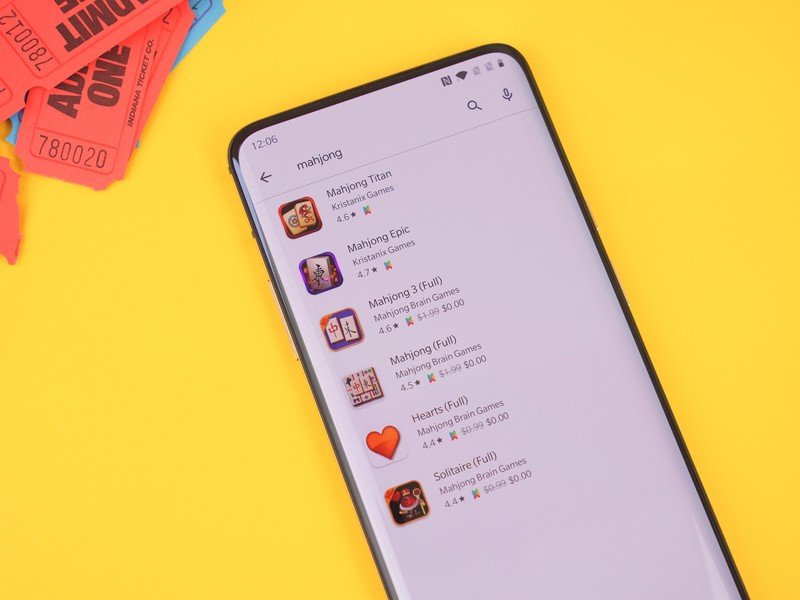
For example, if you search "2048", you'll find three different games all called "2048" that do almost the exact same thing. Furthermore, all three of these games can regularly be downloaded for free, as Play Pass just gets rid of the in-app advertisements.
Many of the titles in Play Pass are duplicates of the same game.
I also came across three-word search games, four mahjong games, and seven sudoku games. I'm all for having a large variety of things to play, but having so many duplicates for the same basic game starts to eat away at the value of the money you're handing over each month.
As for the app selection, this feels pretty throwaway and like an afterthought compared to the game offerings. There are some notable entries here, such as the pro version of AccuWeather, Dictionary.com Premium, and Enpass (a popular password manager), but I didn't come across anything that I felt compelled to download.
I understand Google's desire to cram as much as it can into Play Pass so that people feel like they're getting their money's worth, but this subscription model feels odd to me for regular applications. I typically don't play games on my phone, but with something like Apple Arcade or Play Pass, having access to so many titles I've never checked out for a low monthly rate is enticing. With apps, I've built up a collection of ones that I enjoy using and have a pretty good idea of what's out there. A lot of the apps in Play Pass feel like they were included just for the sake of it.
That is, unless you're really dying to get an ad-free version of RevHeadz Engine Sounds or TextArt ★ Cool Text creator.
Google Play Pass Unmatched Value
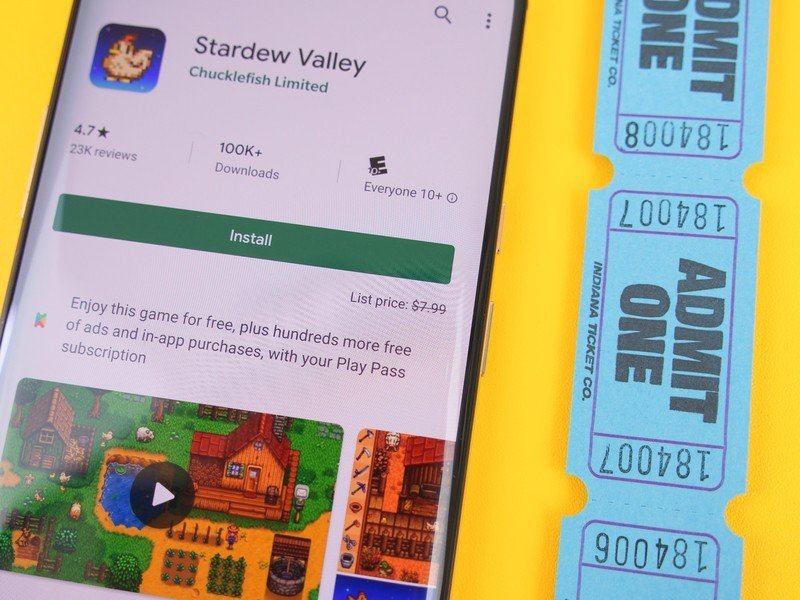
Next, let's talk about what makes Play Pass stand out — its value. Taking those six games mentioned above, here's what they would usually cost you if you bought them one by one.
- Monument Valley 2 ($4.99)
- Stardew Valley ($7.99)
- Star Wars: KOTOR ($9.99)
- Reigns: Her Majesty ($2.99)
- Terraria ($4.99)
- LIMBO ($4.99)
If you were to buy just those six games on their own, you'd pay $35.94 — equal to about seven month's worth of a Play Pass subscription.
Many of the games in Play Pass are equal to or greater than one month of access to the service, so from a value proposition, there's no doubt that you're getting more than your money's worth.
To play devil's advocate, however, that value can also be quickly lowered if you already own some of the titles being offered. Which, isn't unlikely considering that many of the big-name games have been on the Play Store for a while.
Google Play Pass Bypassing in-app purchases and advertisements
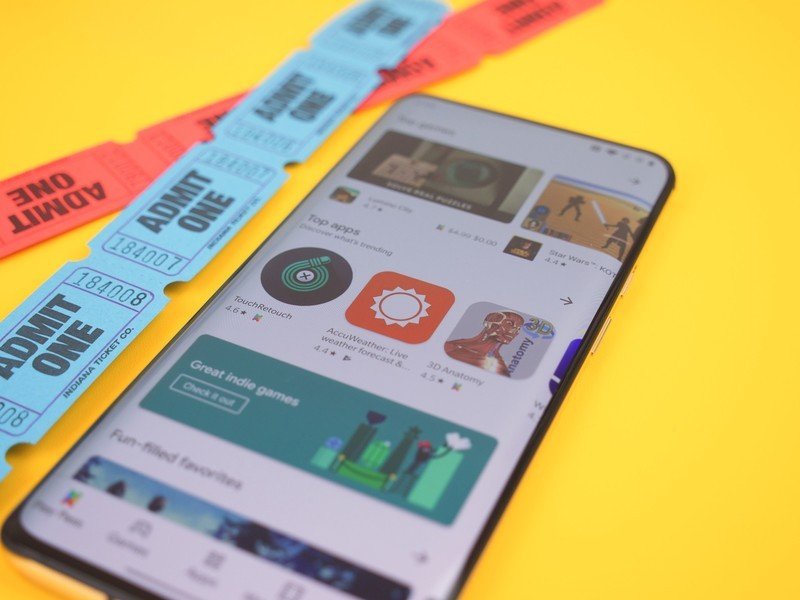
As mentioned above, some of the games in Play Pass are already available for free on the Play Store for everyone. In these instances, Play Pass bypasses any in-app purchases and advertisements for a cleaner experience. I tried a few of these out, and what you end up with varies on an app-by-app basis.
With Pasty Paradise, for example, you need to watch a short ad to refill your Lives. In the Play Pass version, you can refill your Lives automatically — no ad-watching required. The regular version also allows you to earn three Medals every few hours, or get an additional ten by watching another ad. The Play Pass version has the same setup of giving you three Medals every few hours, but there's nothing beyond that. In other words, you're stuck earning Medals at a much slower rate than the standard, non-Play Pass version. Medals are used to buy Coins, which in turn allows you to purchase power-ups to get through levels easier. As such, if you Play Pastry Paradise with a Play Pass subscription, you'll earn Medals and power-ups more slowly than if you just played the regular version.
Other games, such as My Bakery Empire, are a bit more straightforward in this execution. In the regular version of the game, there are multiple in-app packs you can buy for removing ads, getting new clothes for your character, more cake decorations, and unlimited coins. These packs still exist in the Play Pass variant of the game, but you can unlock them for free. It's weird that you still need to go through and manually "purchase" the packs rather than having them applied automatically, but this was likely a much faster solution for the developers.
In all cases of these free games on Play Pass, pesky advertisements are completely removed. This is great news, as many of the free-to-play games I checked out had full-page takeover ads on their non-Play Pass counterparts.
Google Play Pass Should you sign up?
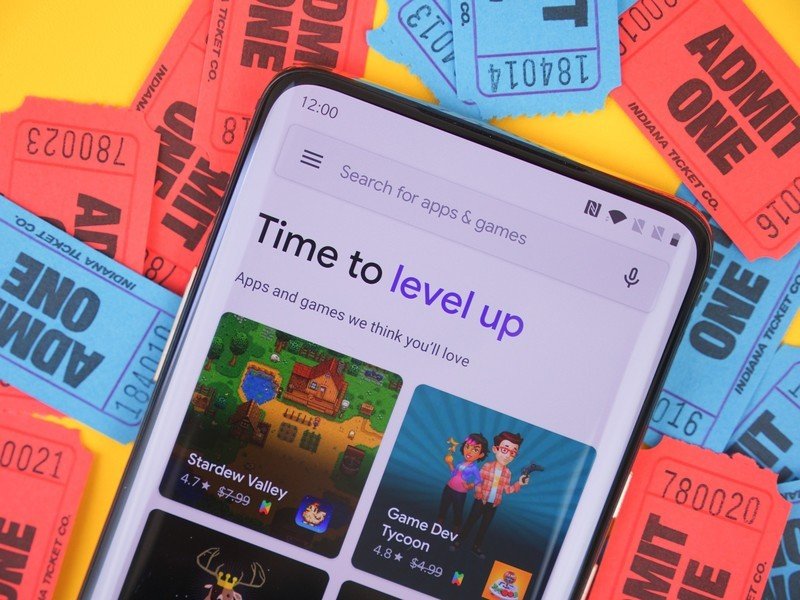
Google Play Pass is an interesting service.
The idea of paying a low monthly fee for access to hundreds of premium apps and games sounds fantastic, and in some regards, Play Pass shows signs of promise. It's integrated nicely into the regular Play Store experience, the pricing model is competitive, and there are some big titles thrown in that really help you get your money's worth.
The potential for Play Pass is huge — if Google follows through with it.
All of that's great and makes Play Pass look like a clear winner on paper, but as you dig deeper into what's on offer, you start to see that you might be fine skipping over the service entirely.
Play Pass's ability to include over 350 titles at launch sounds damn impressive, but when you realize that many of those are duplicate offerings or things you have zero interest in, the value of that large number is quickly diminished.
It also doesn't help that a lot of the games included with Play Pass can already be downloaded for free, and while having ads and in-app purchases removed does clean up the experience a bit, the implementation often feels like a dirty hack rather than something that was well-thought-out. A lot of this could change as time goes on, but as Google has shown multiple times in the past, it's perfectly fine with launching a new service, not updating it, and then eventually killing it off a year or two later.
3 out of 5
Should you sign up for Play Pass between now and October 10, you can get it for just $1.99/month for your first twelve months. After that, it goes up to the regular price of $4.99/month.
If you're on the fence, Play Pass is cheap enough that you can try it out for a month or two, figure out if you're really getting your money's worth, and then either keep paying your subscription or cancel your membership and walk away.
That aspect I really like, because at least in its current implementation, Play Pass doesn't offer enough for me to add another recurring charge to my credit card.

Interesting concept, mixed execution.
There's no denying Play Pass's value proposition. You pay a low monthly fee for access to a large collection of apps and games, some of which are more than worth the price of admission on their own. Just be ready to sift through some garbage here and there as Google's curation needs a bit of work.

Joe Maring was a Senior Editor for Android Central between 2017 and 2021. You can reach him on Twitter at @JoeMaring1.
